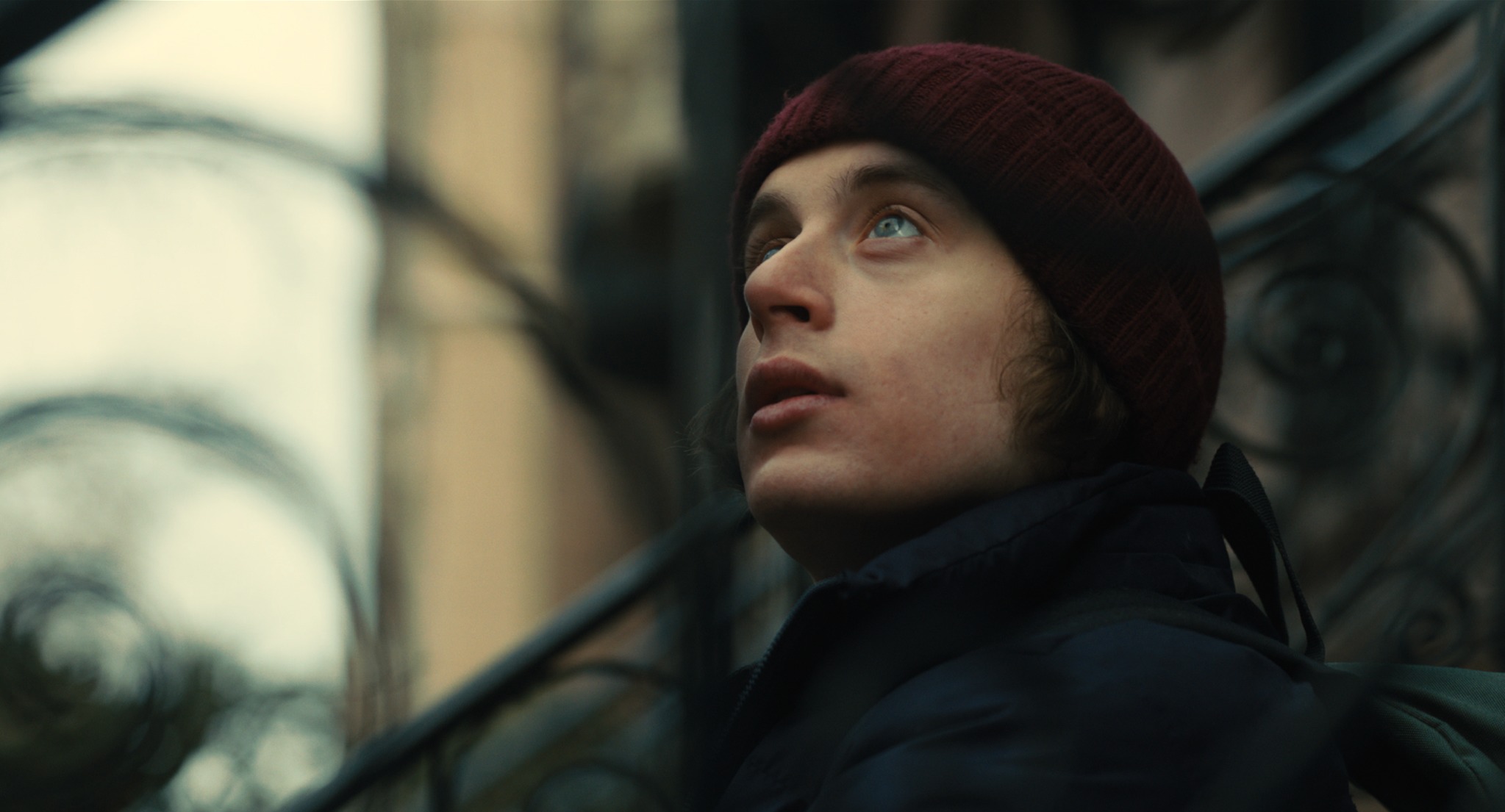By providing your information, you agree to our Terms of Use and our Privacy Policy. We use vendors that may also process your information to help provide our services. This site is protected by reCAPTCHA Enterprise and the Google Privacy Policy and Terms of Service apply.
Review: Why the Moody Drama ‘Gabriel’ Is Rory Culkin’s Best Performance
Eric Kohn

READ MORE: Rory Culkin On Being ‘Incredibly Sensitive’ While Shooting ‘Gabriel’
When we first see Rory Culkin in the opening minutes of “Gabriel,” the feature-length debut of Lou Howe, there’s an alarming uneasiness to his presence. The actor’s jittery brown-green eyes suggest a paradoxical state at once fully alert and lost in another world. Culkin remains that way for the duration of the movie, which finds the title character struggling with mental health issues in the wake of his father’s suicide and pining for the affections of a long-lost childhood love. He’s angry with the reality of his conditions while seemingly in denial of the fantasy he uses to escape from them. No matter the melodramatic trappings of the material, Culkin’s fierce performance elevates the experience.
Every since 2004’s “Mean Creek,” Culkin has shown a penchant for dark, brooding roles, and “Gabriel” provides him with plenty of room to flesh out that potential. Appearing in every scene, the actor imbues Gabriel with a wily attitude; while recovering from a meltdown that precedes the start of the story, he’s always on the brink of another one. Like a post-breakdown Holden Caulfield, Gabriel furiously attempts to keep his act together, while everyone walks on eggshells around him. These include Gabriel’s caring older brother Matthew (David Call) and their frantic mother Meredith (Dierdre O’Connell), who have fled from their old abode in the city following the family tragedy and yet remain haunted by it through Gabriel’s running problems. In his opening scenes, he’s seen taking a bus far out of town to stalk his long-standing crush Alice, only to find her out of town; pathetically wielding a five-year-old love note, he confesses his intentions to marry the woman to her befuddled roommate. Sans context, Gabriel already seems like a highly unstable figure, and Howe’s screenplay hasn’t even revealed the half of it.
To that end, “Gabriel” manages a far greater intensity when fully reliant on its leading man’s instability than anything else around him. Neither’s O’Connell’s somber mother figure or Call’s concerned sibling add much to Gabriel’s universe. His tendency to flee the house—continuing his quest to find Alice and, at one point, journey back to the city to explore the ghosts of their old neighborhood—maintain a nervous energy to them, as if we’re lost in Gabriel’s consciousness. Scenes where his mother berates him and threatens to send him back to a mental health clinic hold less appeal; the family squabbling is pretty much run of the mill. Gabriel has such an electric presence that nobody else onscreen can compete. “I still have a lot of male aggression in me,” he says with an eye roll, not sarcastically rejecting the statement as fighting to diminish its grip on his life.
 When the character, in his twisted, confused mindset, attempts to take a stand, the movie transcends its rudimentary story. As he mockingly puts a knife to his throat just to freak out his housemates, the tension is palpable—even Gabriel doesn’t quite know when to take himself seriously. That possibility remains in play during the alarmingly high tension finale, when Gabriel finally discovers Alice (Emily Meade) and finally struggles to reconcile the gap between his past and present. Howe’s strong debut derives its strength from exploring this ongoing disconnect. Cinematographer Wyatt Garfield (“The Cold Lands”) renders the setting with the iciness of a drab color scheme that nevertheless has a hauntingly beautiful quality that mimics Gabriel’s dreamlike means of denying his problems.
When the character, in his twisted, confused mindset, attempts to take a stand, the movie transcends its rudimentary story. As he mockingly puts a knife to his throat just to freak out his housemates, the tension is palpable—even Gabriel doesn’t quite know when to take himself seriously. That possibility remains in play during the alarmingly high tension finale, when Gabriel finally discovers Alice (Emily Meade) and finally struggles to reconcile the gap between his past and present. Howe’s strong debut derives its strength from exploring this ongoing disconnect. Cinematographer Wyatt Garfield (“The Cold Lands”) renders the setting with the iciness of a drab color scheme that nevertheless has a hauntingly beautiful quality that mimics Gabriel’s dreamlike means of denying his problems.
“Gabriel” never entirely compliments its eponymous subject with a story that can match his erratic mentality, but Howe’s restrained approach is refreshingly unsentimental, never once creating the possibility of an easy resolution to the situation. Instead, it magnifies Gabriel’s conundrum in a moment trapped between major events: an off-screen death that takes place before the movie begins and the fallout of the actions that unfold in its final moments. The sudden finale may strike some viewers as something of a cheat, but it’s also in tune with a movie more centered on emotional duress than exposition. Gabriel’s abrupt wakeup call is the closest he can come to the happy ending that constantly eludes him. How long he can maintain it is a puzzle that Howe smartly leaves unsolved.
Grade: B+
“Gabriel” opens in limited release this Friday.
By providing your information, you agree to our Terms of Use and our Privacy Policy. We use vendors that may also process your information to help provide our services. This site is protected by reCAPTCHA Enterprise and the Google Privacy Policy and Terms of Service apply.
















